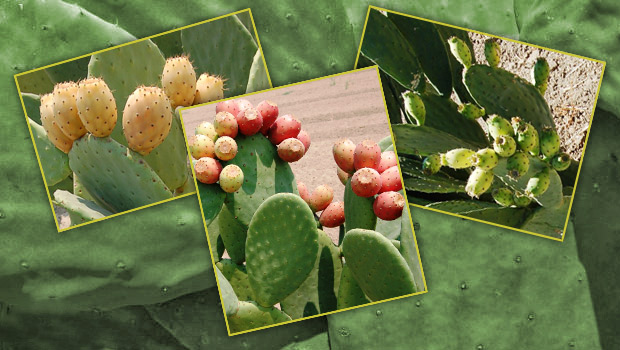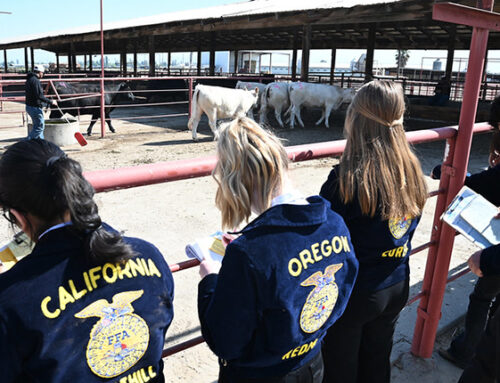Fresno State received four new patents for cultivated varieties of cactus plants that can be grown in areas of the Valley with high selenium levels and limited access to quality water. The patents are co-owned by the university, Red Rock Ranch and the United States Department of Agriculture.
“Developing new salt- and boron-tolerant cultivars from Opuntia cactus that can grow in unproductive soils of the west side of the San Joaquin Valley may encourage widespread production of new crops and produce products of economic value,” said USDA plant and soil scientist Gary Banuelos.
Four unique Opuntia cactus pear cultivars were selected and propagated by Banuelos, Red Rock Ranch President John Diener of Five Points and former Fresno State plant scientist John Freeman. Red Rock Ranch intends to develop and market products derived from these new plants in the form of juice and powder blends.
“These selected cactus pear cultivars produce delicious fruit and cladodes with moderate levels of selenium,” said Freeman, adding that 400,000 acres on the west side of the San Joaquin Valley are currently deemed threatened or semi-retired for growing crops. “Red Rock Ranch, the USDA and Fresno State have been at the forefront of developing alternative crops to tolerate drought conditions in this economically hard hit area of Central California.”
Fresno State began a concentrated effort three years ago to apply for patents and capitalize on the intellectual property stemming from its own faculty research as well as that of other researchers and inventors in the region. Dr. Thomas McClanahan, associate vice president for Research at Fresno State, said this focus was natural for the university’s expanding research agenda.
“We decided to fill a need not only in the Valley, but also in the CSU system, and we’re making significant strides in these areas in a short period of time,” McClanahan said.
Two years ago McClanahan recruited Grace Liu, a Central Valley native and experienced patent attorney, to join his staff. Since then, intellectual property disclosures from Fresno State faculty has increased to about 30 each year. Five new patents have been issued in the past 10 months.
Fresno State also acts as a hub for several other CSU campuses that need intellectual property and patent expertise. The university has agreements to work with San Francisco State, Cal State Monterey Bay, Cal State Bakersfield and Cal State Fullerton on patent filings and training.
Fresno State also partners with private businesses like Red Rock Farms to help stimulate economic development and capture the intellectual value of ideas and inventions generated by faculty researchers.
“We see it as a win/win situation,” Liu said. “Fresno State broadens its outreach and other businesses and institutions build on their own and the university’s expertise and resources. It’s exciting to see our researchers expand their vision for their research beyond the campus or academia. It demonstrates how universities can be an important part of a regional economic ecosystem and how our researchers can provide seeds that can spur genuine technological and economic development.”
Fresno State now holds 10 patents, including the four plant patents for Opuntia plants. One of the other patents is on a composition that can be used in organic farming to control pests, invented by biology professor Brian Tsukimura. Fresno State intends to license Tsukimura’s technology to companies interested in manufacturing organic pesticides. Another patent is on a voice recognition algorithm invented by linguistics professor Sean Fulop. Discussions are under way about how to take Fulop’s invention to the next stage of its development.
For more information, contact Banuelos at 559.596.2880 or gary.banuelos@ars.usda.gov, or Freeman at 650.604.2144 or john.l.freeman@nasa.gov.
Related Links:




